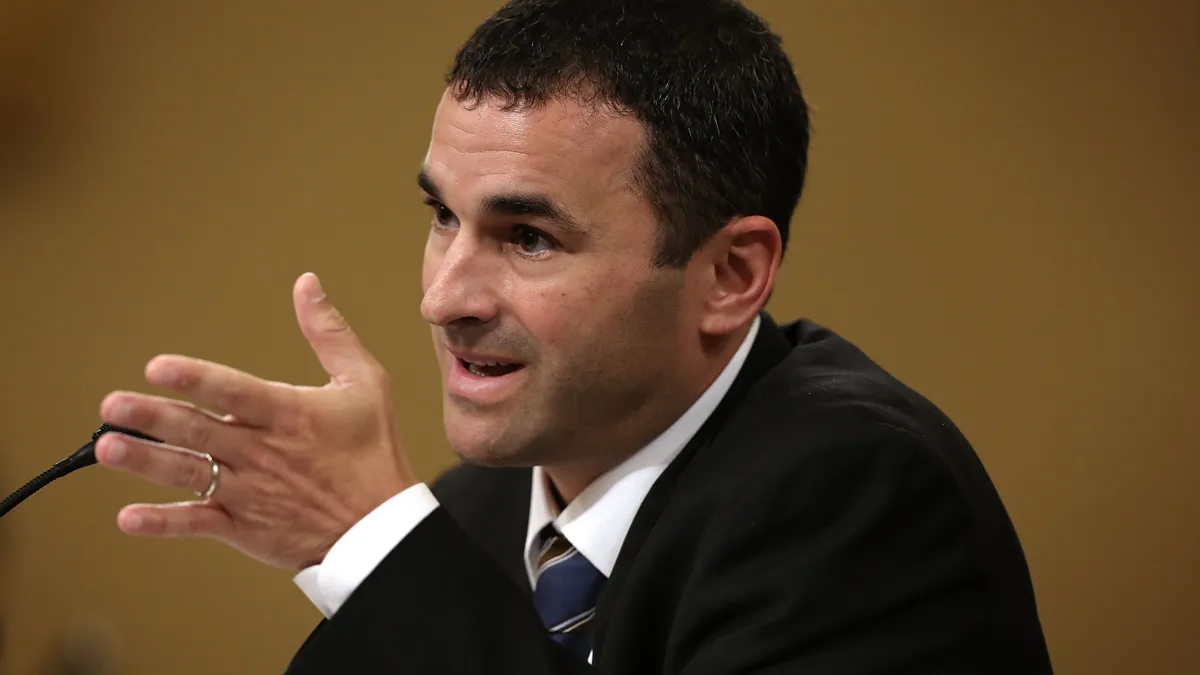Dive Brief:
- The Internal Revenue Service plans to channel more than half of an $80 billion, 10-year budget boost toward enforcement, aiming particularly at reducing tax evasion by large companies, partnerships and wealthy individuals.
- Tax collectors will focus $45.6 billion in “enforcement resources on hiring the accountants, attorneys and data scientists needed to pursue high-income and high-wealth individuals, complex partnership and large corporations that are not paying the taxes they owe,” IRS Commissioner Daniel Werfel said in a letter to Treasury Secretary Janet Yellen describing a 149-page Strategic Operating Plan.
- After several years of cutbacks in IRS funding, audit rates of filings by large corporations fell to 1.7% in 2019 from 10.5% in 2011, the IRS said in its report. The audit rate for partnerships was 0.05% in 2019, the agency said, noting that the number of partnerships rose by 2020 to 4.3 million, 32% higher than in 2010.
Dive Insight:
During the coming decade, the $80 billion IRS budget increase will help fund an expansion of enforcement staff and boost federal revenue by more than $180 billion, the IRS said, citing estimates by the Congressional Budget Office.
“We believe the actual increase will be greater, since all our efforts as outlined in this plan — including in the areas of service, issue resolution and effective enforcement — will increase overall tax compliance,” the IRS said in its report.
The 2022 funding boost approved by Congress last year is aimed at helping to close an estimated $496 billion “tax gap,” or the difference between taxes due and taxes paid.
Congress cut the IRS budget 22% from 2010 through 2021. Agency technology became obsolete. Also, staff levels during the period shrunk nearly 20% even as the U.S. population rose 7% and tax complexity increased, Werfel said.
“This lack of investment has led to low levels of service, paper-based processes, antiquated technology and an overall experience for taxpayers that falls short of what we want to deliver,” the IRS said.
Republican lawmakers have panned the expansion in IRS funding, claiming that enforcement will primarily focus on middle-class taxpayers.
“Americans are rightly concerned the IRS will use its $80 billion pay raise to go after the middle class, and today’s announcement does nothing to ease those concerns,” House Ways and Means Committee Chair Jason Smith, (R-Mo.), said Thursday in a statement.
The IRS plans to focus its stricter enforcement on large companies, complex partnerships and taxpayers earning $1 million or more, Werfel said.
“All efforts will comply with your directive not to use IRA resources to raise audit rates on small businesses and households making under $400,000 per year,” Werfel said in his letter to Yellen, referring to the funding approved last year under the Inflation Reduction Act.
The audit rate of filings by taxpayers earning $1 million or more fell to 0.7% in 2019 from 7.2% in 2011, the IRS said.












